In today’s digital age, having a strong online presence is essential for the success of any business. One of the key elements of establishing this presence is having a website. But what kind of businesses really need a website? In this comprehensive guide, we will explore the importance of websites for businesses, regardless of their size or industry. From small startups to large corporations, the benefits of having a website are undeniable. Let’s dive into the reasons why every business needs a website.

Listed below are the key types of businesses that need a website and the benefits to those businesses. However, the benefits are not exclusive to only those types of business. Most of the benefits listed below could easily apply to any business of any size, so make sure you read the entire post, otherwise, you may be missing out on some crucial insight!
Small businesses are the backbone of any economy. Whether it’s a local bakery, a boutique shop, or a freelance service provider, having a website can significantly boost visibility and reach for small businesses.
With a website, small businesses can expand their reach beyond their local community. By optimizing their website for search engines, they can attract customers from all over the world.
Top tip: Combine the strengths of having a website with a social media strategy to get your products and services in front of as many people as possible.
A well-designed website can help small businesses establish credibility and professionalism in the eyes of potential customers. It serves as a digital storefront that showcases products, services, and customer testimonials.
Unlike physical stores, websites are accessible 24/7, allowing customers to learn about the business and make purchases at their convenience. This constant availability enhances customer satisfaction and increases sales opportunities.
Compared to traditional marketing methods, such as print ads or billboards, maintaining a website is much more cost-effective. Small businesses can reach a larger audience with a smaller investment and build in that investment over time.
For small businesses that sell products, an e-commerce website opens up new avenues for sales. With secure payment gateways and user-friendly interfaces, customers can easily browse and purchase items online.
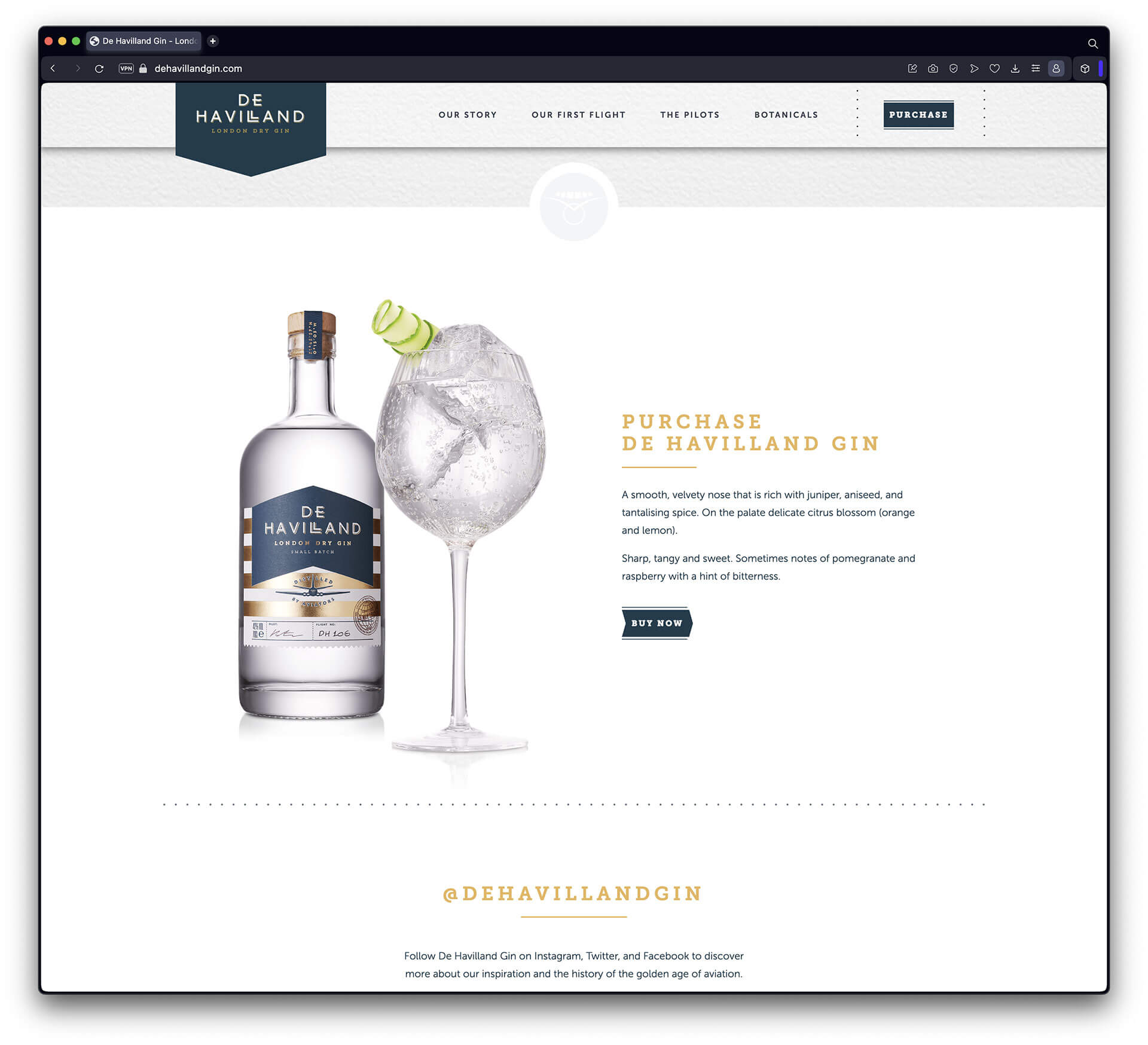
De Havilland Gin website for pilot and entrepreneur Hiru Bathija by LWDA
Startups and entrepreneurs often operate on limited budgets and resources, making it crucial for them to maximize their online presence from the beginning.
A website is an essential tool for startups to build brand awareness and promote their products or services. By showcasing their unique value proposition, startups can attract early adopters and investors.
Through blogs, forums, and social media integration, startups can engage with their target audience and build a community around their brand. This interaction fosters customer loyalty and word-of-mouth marketing.
For startups seeking funding or partnerships, a professional website is a must-have. It serves as a centralised platform for sharing company information, financial reports, and updates with potential investors.
As startups grow, their website can easily scale to accommodate increased traffic and functionality. Whether it’s adding new features or expanding into new markets, a well-designed website is flexible enough to support growth.
In today’s competitive market, having a polished website sets startups apart from their competitors. It demonstrates professionalism and innovation, which can attract customers and investors alike.
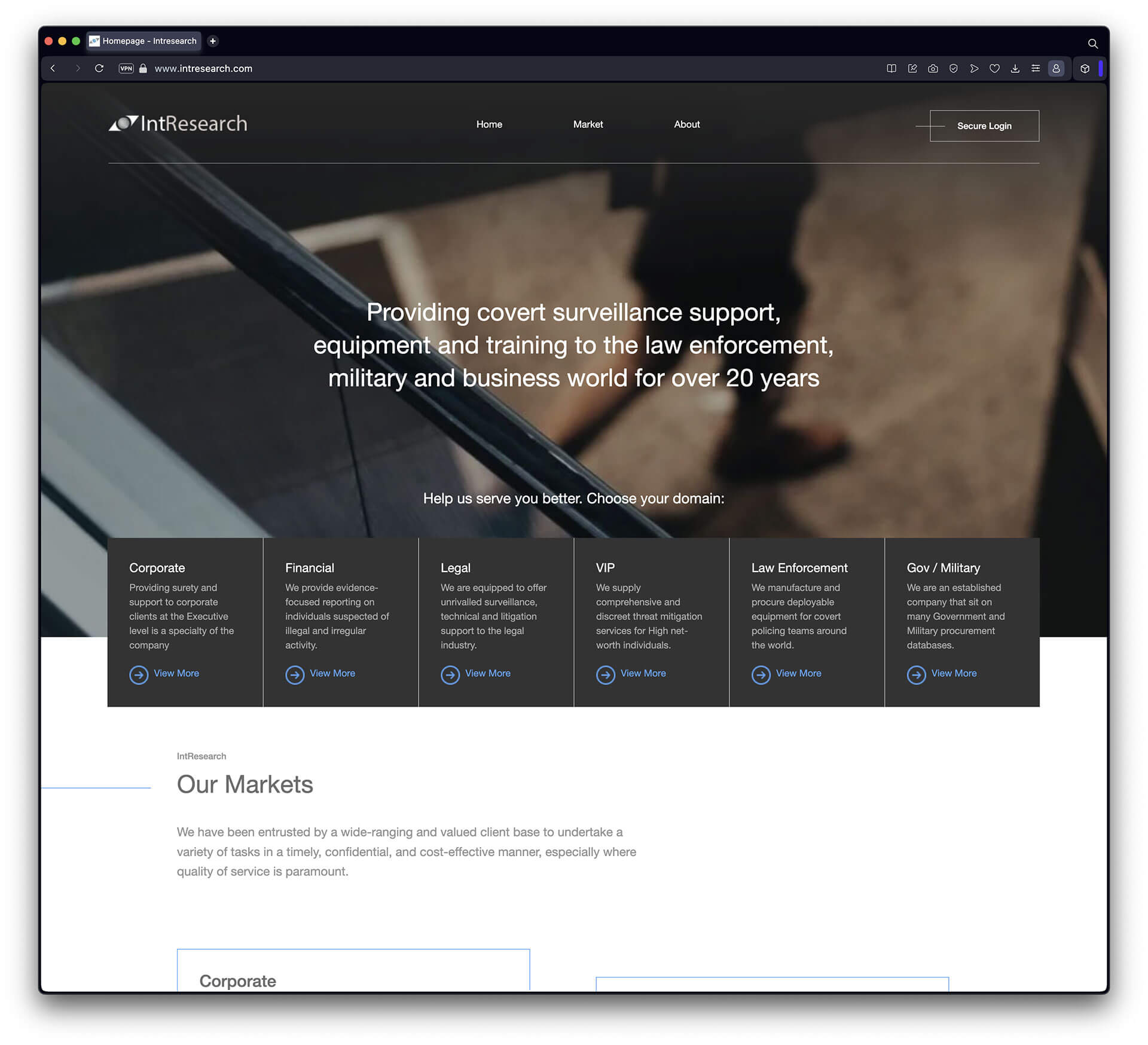
IntResearch security consultancy website by LWDA/Devstars
Freelancers and consultants rely on their personal brand to attract clients and secure projects. A professional website is essential for showcasing their skills and expertise.
A website serves as an online portfolio where freelancers and consultants can showcase their previous work, client testimonials, and areas of expertise. This visual representation helps them stand out to potential clients.
By optimising their website for search engines and social media, freelancers and consultants can attract leads and inquiries from potential clients. A well-designed contact form makes it easy for visitors to reach out and inquire about services.
Through blog posts, case studies, and whitepapers, freelancers and consultants can demonstrate their industry knowledge and establish themselves as thought leaders in their field. This builds trust and credibility with potential clients.
With a website, freelancers and consultants can work with clients from all over the world, regardless of geographical boundaries. This expands their potential client base and provides opportunities for diverse projects.
A website acts as a central hub for communication, allowing freelancers and consultants to share project updates, deliverables, and invoices with clients in a professional manner.
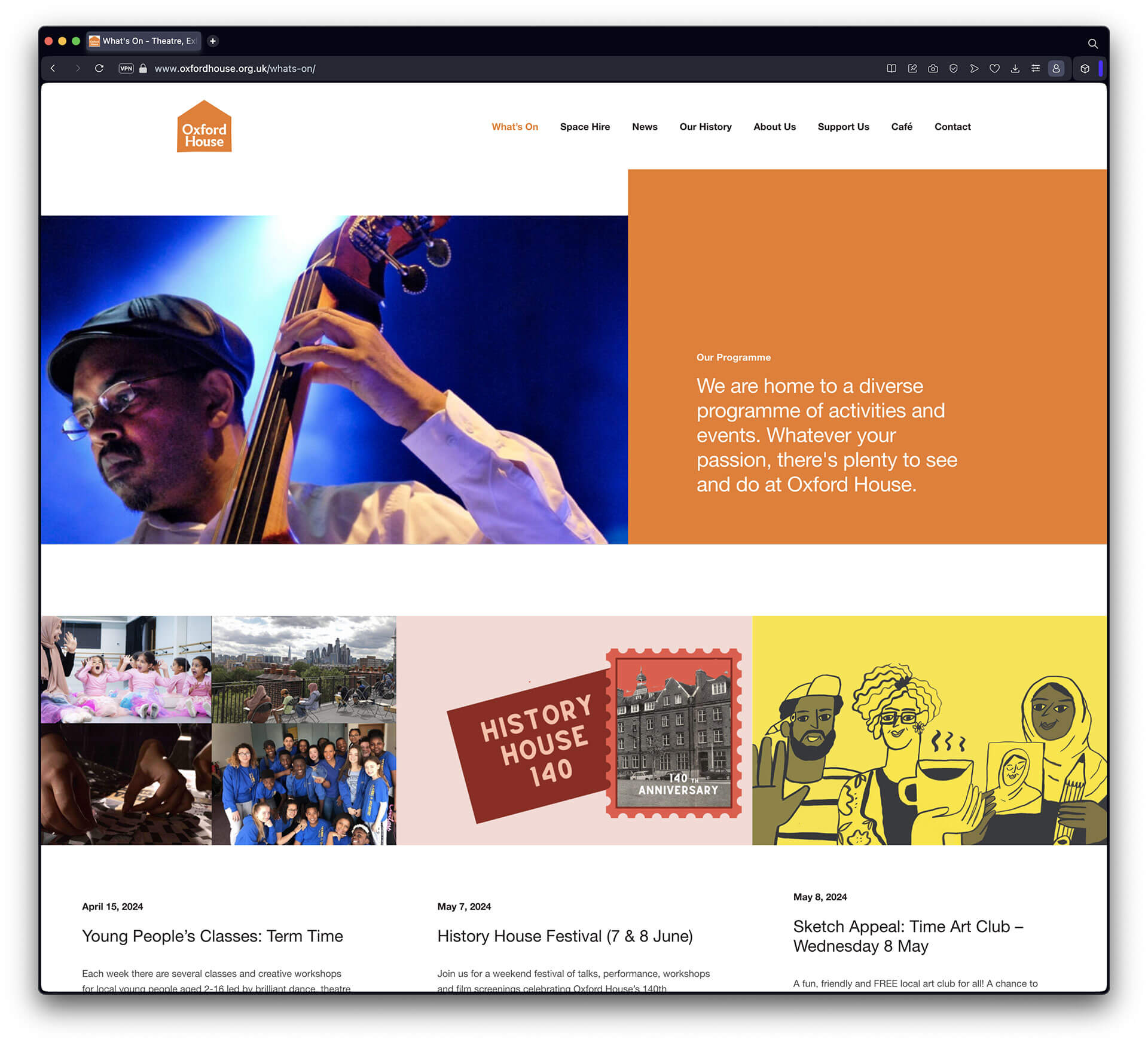
Oxford House Local Business and Community Website by LWDA
Even local businesses, such as restaurants, salons, and repair shops, can benefit greatly from having a website.
In an increasingly digital world, consumers often turn to the internet to find local businesses. A website ensures that local businesses can be found online and provides essential information such as location, hours, and contact details.
A website allows local businesses to showcase customer reviews and testimonials, which can greatly influence purchasing decisions. Positive reviews build trust and encourage new customers to give the business a try.
For businesses like restaurants or salons, offering online reservations or appointment bookings through their website can streamline operations and improve customer satisfaction. It eliminates the need for phone calls and allows customers to book at their convenience.
Local businesses can use their website to promote special offers, discounts, and events to attract new customers and retain existing ones. This helps drive foot traffic and increase sales during slow periods.
Through blogs, social media integration, and event listings, local businesses can engage with their community and foster a sense of belonging. This strengthens customer loyalty and encourages repeat business.
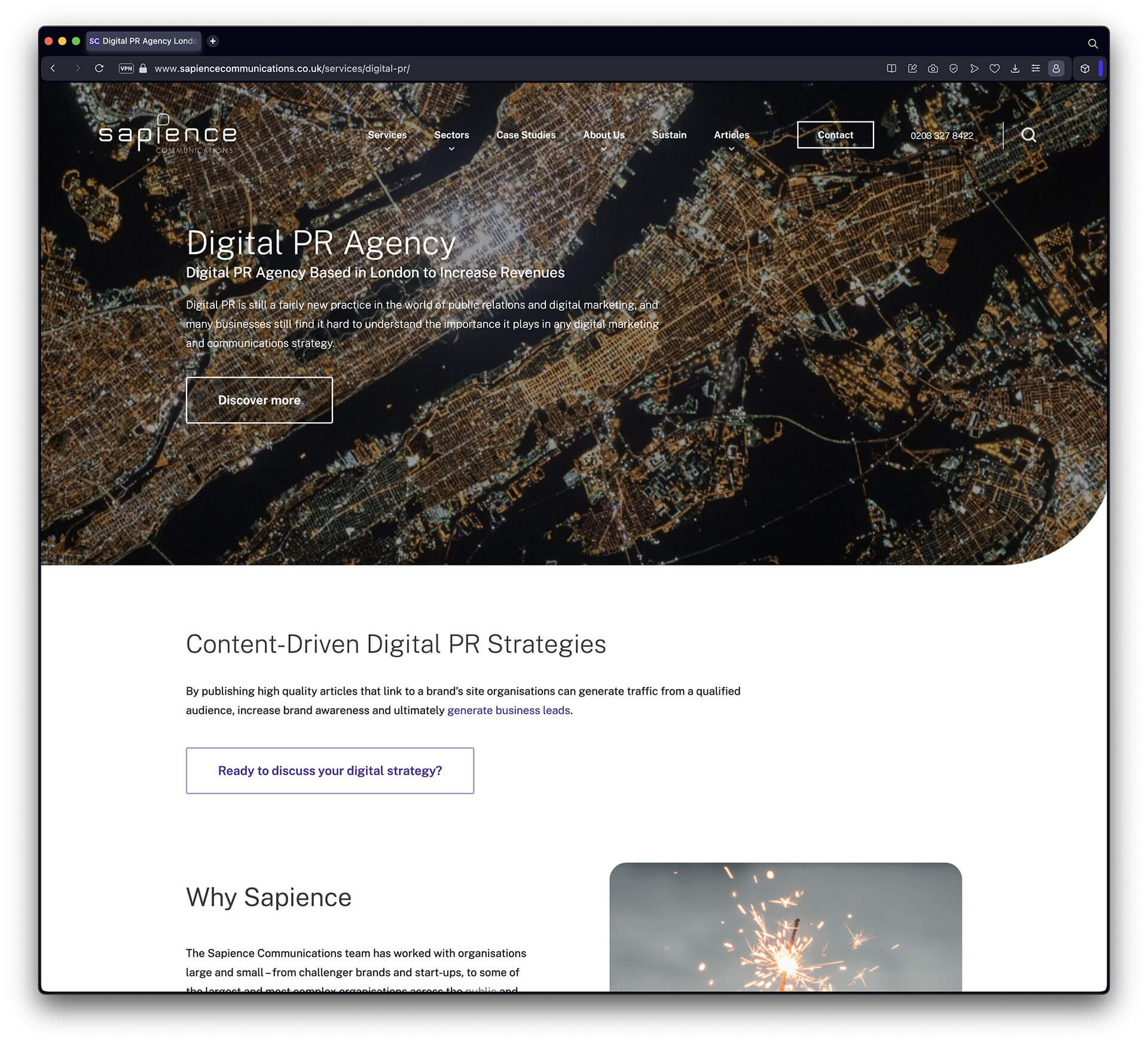
Sapience Communication PR agency website by LWDA
Even large corporations with established reputations and extensive resources can benefit from having a robust online presence.
A website is an essential tool for large corporations to maintain brand visibility and stay top-of-mind with consumers. It serves as a central hub for corporate communications, news updates, and product information.
Large corporations use their website to communicate with shareholders, investors, and analysts. This includes providing financial reports, corporate governance information, and details about upcoming events or conferences.
A well-designed website can serve as a self-service portal for customers, allowing them to find answers to common questions, troubleshoot issues, and submit support tickets. This reduces the burden on customer support teams and improves overall efficiency.
Large corporations rely on their website to attract top talent and showcase their company culture. They use career pages, employee testimonials, and job listings to attract qualified candidates and encourage them to apply.
For corporations looking to expand into new markets, a localized website is essential. It allows them to tailor their messaging, content, and offerings to specific regions and languages, ensuring a seamless customer experience.
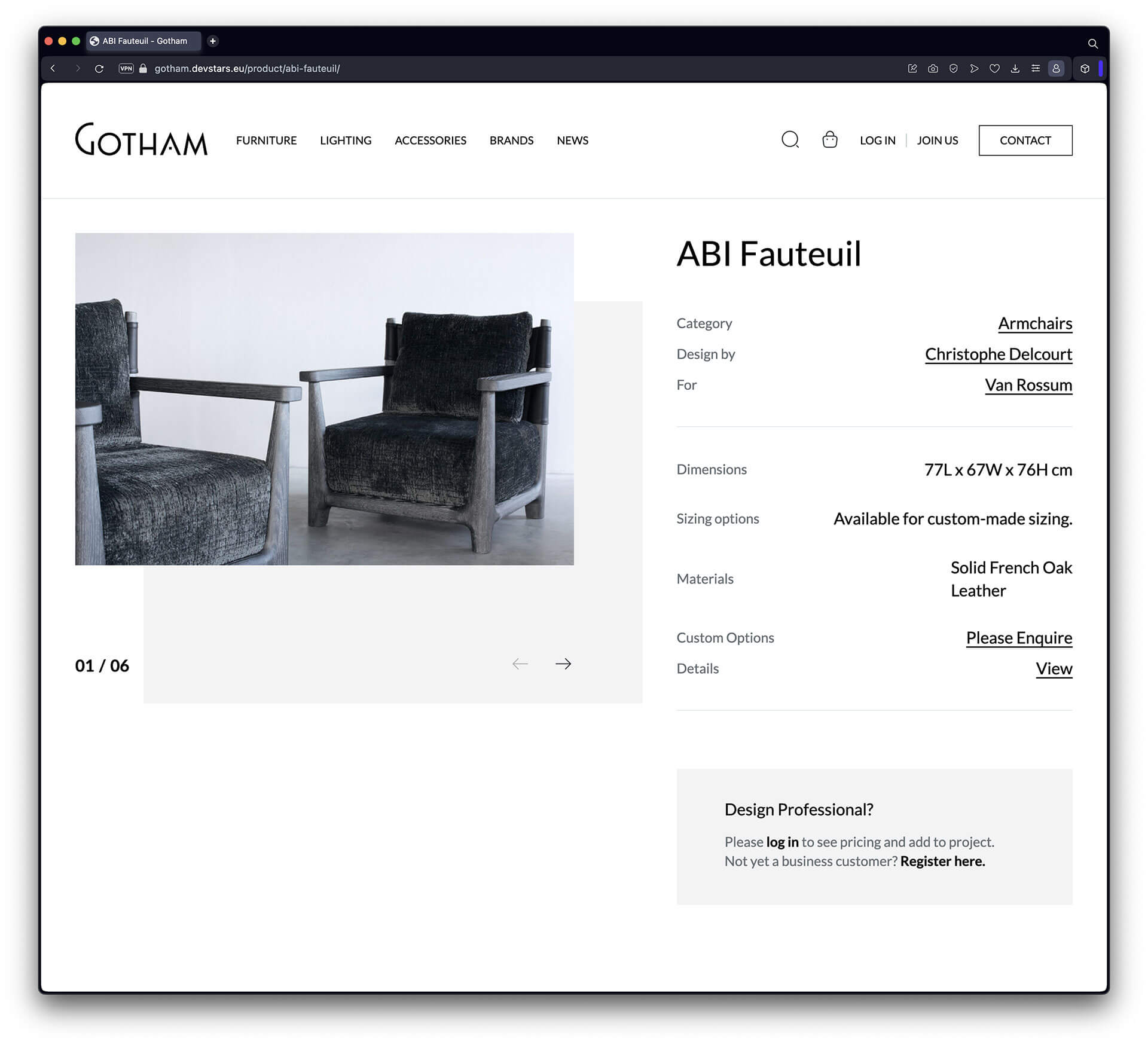
Gotham Notting Hill e-commerce website by Devstars
In the digital age, e-commerce businesses are thriving, and a strong online presence is critical for their success.
A website serves as the virtual storefront for e-commerce businesses, where customers can browse products, read reviews, and make purchases. It should be visually appealing, easy to navigate, and optimized for conversions.
E-commerce websites should provide detailed product descriptions, high-quality images, and customer reviews to help shoppers make informed purchasing decisions. A well-organized catalogue makes it easy for customers to find what they’re looking for.
Security is paramount for e-commerce websites, especially when handling sensitive customer information. Implementing SSL certificates, secure payment gateways, and fraud detection measures instills confidence in customers and protects their data.
From order processing to shipping and delivery, e-commerce websites should provide real-time updates and tracking information to keep customers informed every step of the way. This enhances the overall shopping experience and encourages repeat business.
E-commerce businesses rely on customer feedback to improve their products and services. By soliciting reviews and ratings, they can gather valuable insights and identify areas for improvement, leading to higher customer satisfaction and loyalty.
In conclusion, the question “What kind of businesses need a website?” can be answered with a resounding “Every kind.” Whether you’re a small startup, a local business, or a multinational corporation, having a website is essential for establishing credibility, reaching customers, and driving growth. From increased visibility to enhanced customer engagement, the benefits of having a website are numerous and undeniable. So if your business doesn’t have a website yet, now is the time to invest in one and reap the rewards of a strong online presence.